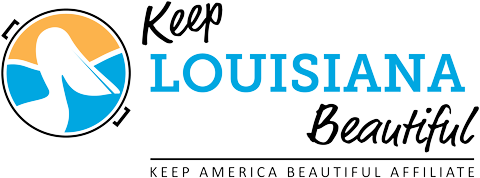Posted on Nov 13, 2024 | Blog,News
It’s America Recycles Week!
Keep Louisiana Beautiful (KLB) wants you to know that this week is America Recycles Week, concluding with America Recycles Day on Friday, November 15! This week serves as an opportunity to look at your recycling habits and make lasting changes. Recycling varies from community to community, so it’s important to check with your local recycling providers on what’s available to you. Included in this blog post is helpful information on recycling in Louisiana, along with links to additional resources.
Louisiana Recycling Data
Recycling Partnership’s 2022 report on the state of Louisiana’s residential recycling access and infrastructure tells us that at the time the report was published, the state had 23 curbside programs, 21 staff drop-off programs, and six unstaffed drop-off programs. According to DEQ’s most recent annual recycling report, Louisiana’s overall recycling rate for 2021 was 2.9%. Of the 20 parish recycling reports received for the 2021 report, the rate of recycling was 9.2%.
How does this compare to the national data available? According to the EPA’s 2018 national study, the national recycling rate has increased from less than seven percent in 1960 to a rate of 32 percent. While this was a significant jump, we have much work to do on national, state, and local levels.
Recycling Access
Information about recycling resources by city and parish can be found on the Department of Environmental Quality website.
Unfortunately, recycling is not available in all communities. Until access is improved, it’s important to be a mindful consumer and reduce and reuse when possible. What does this mean? Reducing means cutting back on the amount of trash you generate. For instance, instead of purchasing single-use plastics, use reusable water bottles and reusable grocery bags. You can also opt to buy items with little to no packaging. Reusing means turning something old into something new. An example would be using an old milk jug or container as a planter. You might also reuse a glass jam jar to contain something else like rice or beans.
Grants are available to support local recycling efforts. These include, but are not limited to:
- Grants for KLB Community and University Affiliates
Recycling Benefits
The EPA shares the following benefits of recycling:
- Reduces the amount of waste sent to landfills and incinerators
- Conserves natural resources such as timber, water, and minerals
- Increases economic security by tapping a domestic source of materials
- Prevents pollution by reducing the need to mine raw materials
- Saves energy
- Supports American manufacturing and conserves valuable resources
- Creates new jobs in the recycling and manufacturing industries in the United States
Improve the Way You Recycle
When recycling at home or at your business, it’s important to avoid contamination. Contamination occurs when a recycling cart includes trash (non-recyclables), the materials are soiled with food and/or liquids, and/or the materials are bagged.
According to Republic Services in Baton Rouge, a load is considered contaminated if 30% of the items are not recyclable and/or some items are not properly cleaned. If a load is deemed contaminated, it is rejected and landfilled. Approximately 20% of all items received at the Republic MRF are landfilled due to contamination or being non-recyclable.
To avoid contamination, remember that these are items that should not go in your recycling bin: plastic bags, Styrofoam, food waste, batteries, coffee cups, clothing, shoes, tools, children’s toys, wood, fishing hooks, soiled or wet paper and cardboard, bottles with liquid, and needles. When you put these items in your bin, they will contaminate the haul. They can also be hazardous to MRF workers.
Steps to Successful Recycling:
- Know What to Throw: Cardboard, paper, metal cans, plastic bottles and jugs. Check with your local recycling providers.
- Empty. Clean. Dry. Keep all recyclables free of food and liquid.
- Don’t bag it. Bagged items will go to the landfill.
Educational Resources for Youth
Part of KLB’s mission is to educate youth on ways to prevent litter and reduce waste through recycling. KLB has developed free lessons to be used in and outside of the classroom. The manual includes 10 lesson plans that align with the student standards targeting grades K-5. The lessons cover the topics of litter prevention, school litter mapping, recycling, reducing, reusing, microplastics, nonpoint source pollution, and watersheds. You can download or order the manual for free on KLB’s website.
KLB has also created a fun, engaging 12-page activity book for youth. Children will learn about environmental stewardship, litter, and recycling. Included are activities that encourage reflection, problem-solving, and creativity. This resource is free to download or order online.
You can also head to your local library and check out a book from Rocksey’s reading list. Many of the books listed share age-appropriate lessons on recycling.
Other Recycling Opportunities
Check with your local KLB Community and University Affiliates for local recycling events. They often hold events to collect glass, household hazardous waste, tires, and other recyclable items.
You can also sign up for KLB’s Love the Boot Week happening statewide April 5-13. Last year, Louisiana’s largest litter removal and beautification event expanded its recycling offerings, successfully collecting 13,891 cans and plastic bottles at participating events and established drop-offs. This effort was made possible with support from Coca-Cola and Osprey Initiative. Registration for Love the Boot Week will open in January 2025.
Additional Resources on Recycling


